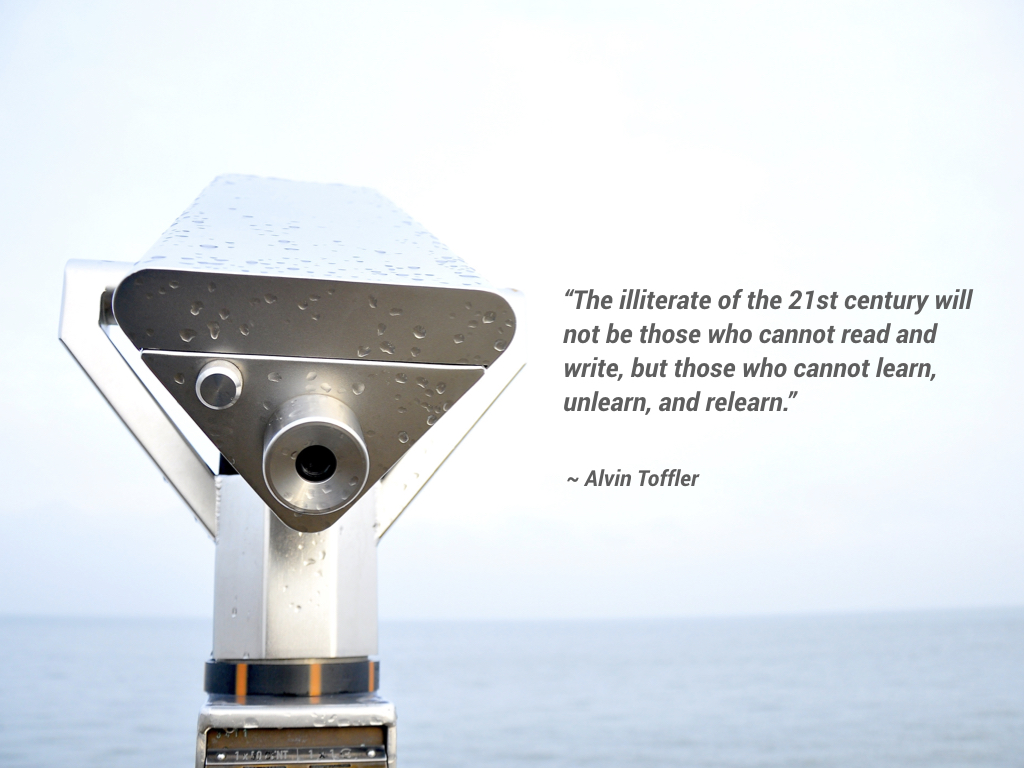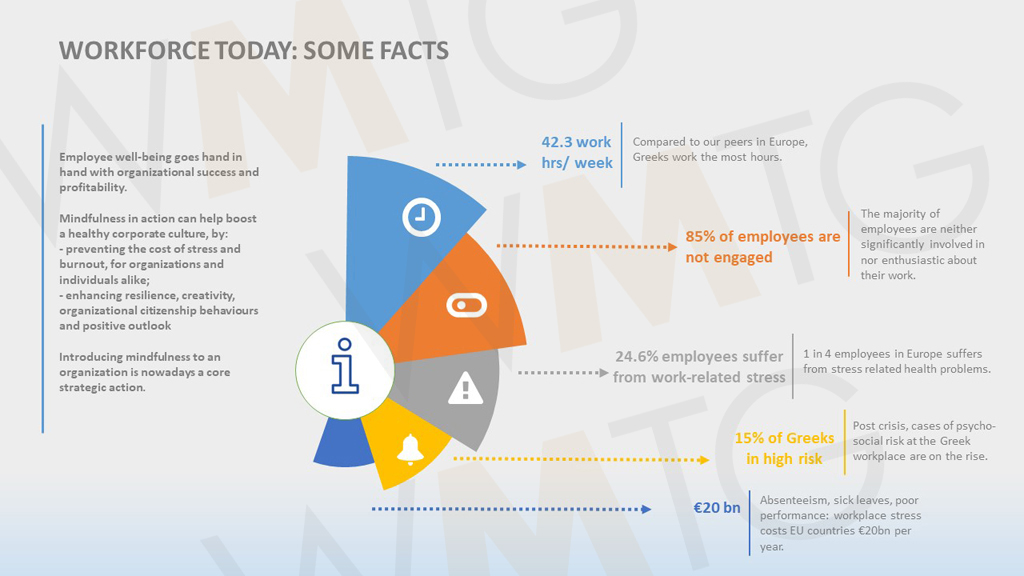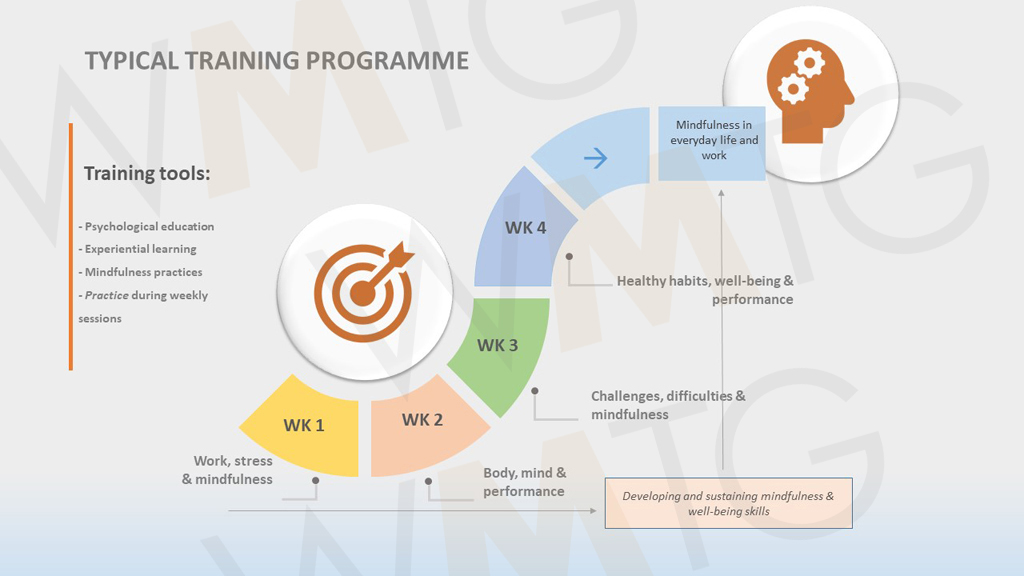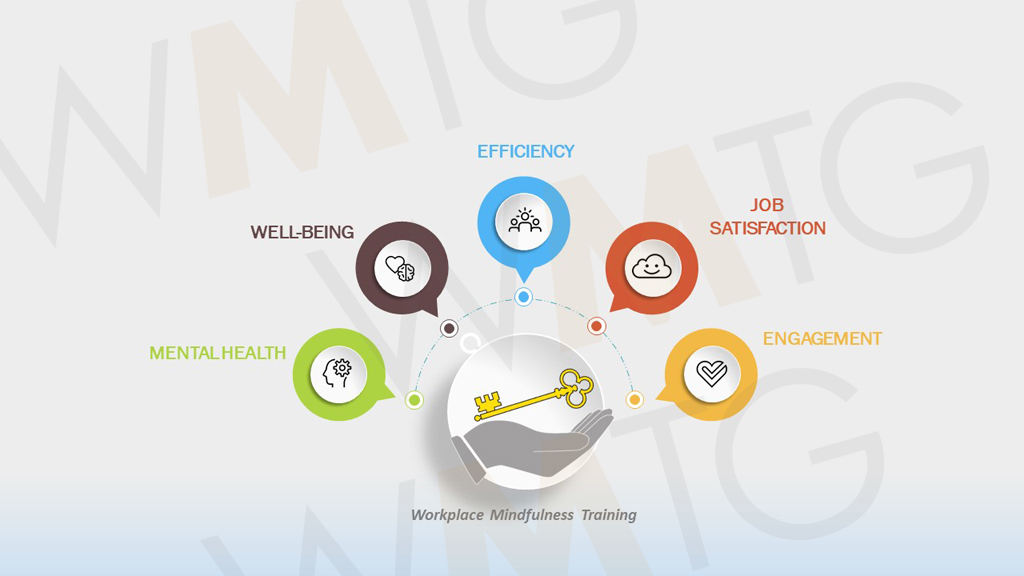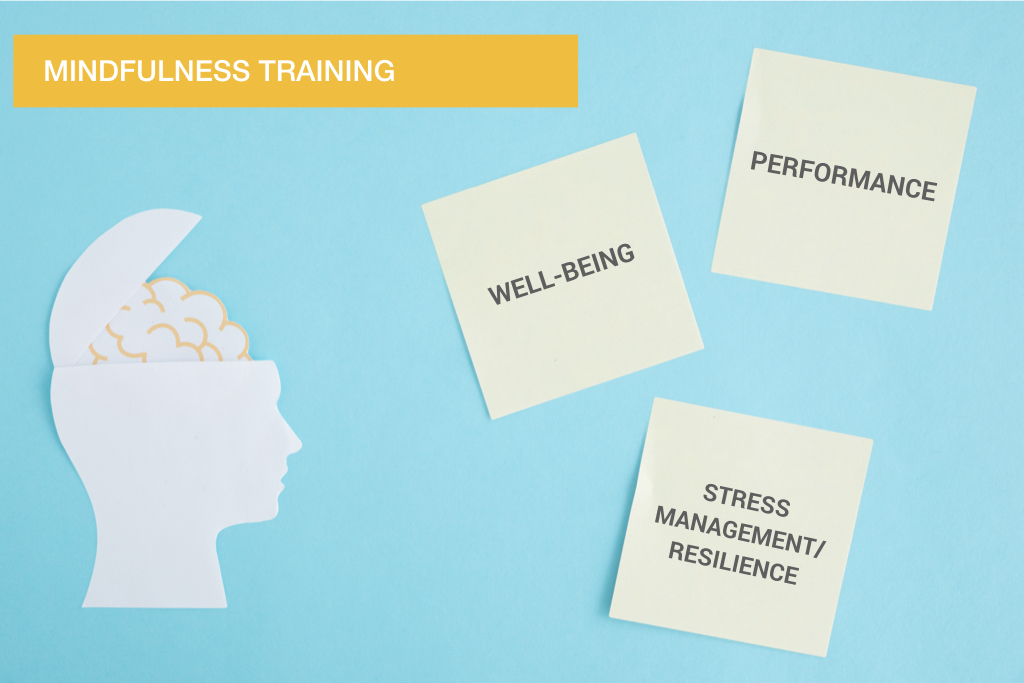In contrast to most mindfulness training programs, which are based on traditional meditation practices, but also to approaches created for clinical settings and aim at treating of psychological disorders, our approach is tailored to the reality of the workplace.
Workplace Training
EMPLOYEE TRAINING PROGRAMMES
Just as The Mindfulness Exchange (TME), we employ Workplace MT, a program based on the book Mindfulness: A Practical Guide to Finding Peace in a Frantic Worldby Mark Williams and Danny Penman, of Oxford University, which is essentially a culmination of their long-term research. We have enriched this framework further, with knowledge gleaned from neuroscience, medicine, science of positive psychology and human resources management so that participants can directly understand the relationship between the practices taught and their daily workplace experiences.
Trainees understand the ways in which their mood can affect their effectiveness, while learning simple and short meditations that can easily be introduced into their daily routines and transform their working and personal lives.
Experiential learning and psychological training are the backbone of our programmes. The duration of training, the practices and the theory we employ are specifically tailored to the needs of employees and the reality of the workplace, a reality far more frenzied than that of therapeutic settings.
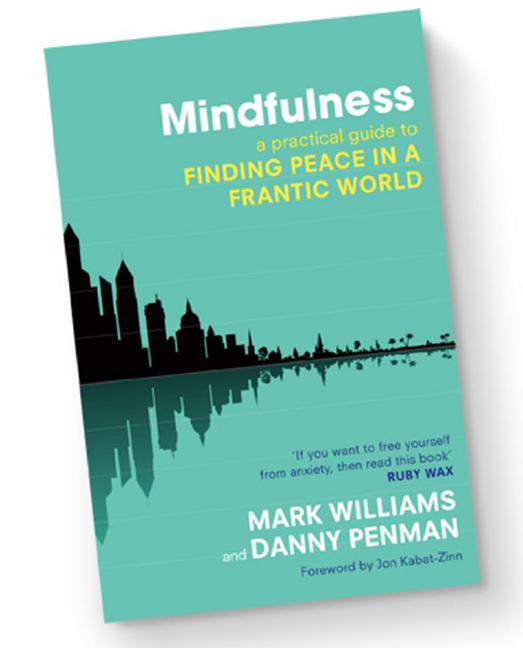
TRAINING PROGRAMMES
Our training programmes are addressed to groups of 10-30 people, take place in weekly training sessions of 1-2 hours and can be completed in the space of 4 or 6 weeks.
We care to have each programme fulfil the culture as well as the educational goals of the organization we are working with. Thus, a program can focus more on understanding and managing stress, on resilience, on leadership skills, on creativity and innovation, and so on.
We also offer seminars, lectures and taster-sessions.
TRAINING PROCESS
The adoption of new, healthy and performance-enhancing habits in the workplace is one of the basic functions of the training we provide.
The process we employ is ‘friendly’ to the way the human brain works, thus making it very effective. The information we offer participants is given in mnemonically-optimal, easily digestible installments. The reason we have so formulated our process is because our ability to absorb knowledge resembles our ability to absorb food: in both cases, there are specific biological limits in the process of intake and digestion.
Participants make use of the interval between the weekly sessions to practice on what they have been taught in the sessions.
In this way, participants perceive differences in their daily habits and the way they manage their roles experientially. The new practices in which they train, create a corresponding imprint in the brain; stored into long-term memory, these practices form the basis of new and effective behaviors, habits. As the principle of neuroplasticity shows, the conscious and repetitive practice of mindfulness changes the structure of the brain, shaping or strengthening new networks of neuronal activity.

MINDFULNESS CORPORATE TRAINING - WHY?
The corporate programmes we offer function as educational tools that serve business strategy goals related to either the mental health and wellbeing of employees, or to improving performance and engagement.
As we have seen from scientific studies as well as our own experience, teaching and practicing mindfulness improves efficiency, resilience to difficulties and job satisfaction. At the same time, introducing a mindfulness training programme to a company can restore / increase lost profit due to absences associated with stress, anxiety or depression.
MINDFULNESS AND ORGANIZATIONAL CHANGE
Introducing our mindfulness training programme into an organization can act like a catalyst in the adaptability and resilience of employees on large-scale but also smaller changes that they are called to implement into their work routines.
At a time characterized by a volatile, uncertain, complex and ambiguous (VUCA) work environment, the concept of organizational change is at the heart of any operational policy.
Trainees are introduced to the science of the brain’s automated response when faced with a change, which, most of the time is interpreted as a threat. This response is essentially the basic survival mechanism of our species, a complex system of interlocking changes happening at almost all of the organism’s subsystems, with the central nervous system in the driver’s seat and the endocrine system riding gunshot. Trainees are also taught one of the most useful practices of mindfulness, active acceptance, a practice directly linked to our ability to be aware of what is happening to us.
As pointed out by Daniel Siegal, M.D., head of UCLA’s Mindful Awareness Research Center and one of the most respected mindfulness experts internationally, people who have received active acceptance training undergo a transformation in their brains, from the threat regime to a state of addressing the discomfort caused by the experience of change.
Instead of avoiding or resisting an imminent change, those who practice mindfulness can remain open and approach the challenges they experience— this is the mark of resilience in the human brain and a very valuable skill indeed for executives and leaders in today’s vuca world.
MINDFULNESS AND ORGANIZATIONAL LEARNING
Through our programs, trainees learn how to better control how they learn and how to increase the concentration required for them in order to learn.
As Thomas Davenport wrote, “understanding and managing attention is now the single, most important determinant of business success.” The ability to learn is a pillar of business efficiency and that is precisely how we contribute to continuing employee training. After all, it is the ability of executives to maintain their concentration that will ultimately make the biggest difference.
Some scientifically-substantiated findings on the relationship between Mindfulness and Organizational Learning:
-
COGNITIVE FUNCTION
People trained in mindfulness have improved cognitive functioning when compared with control groups: they can focus on their work tasks for longer, be more lucid, show improved memory regarding the details of the task-at-hand, report less fatigue and more positive feelings once work tasks are completed.
-
SELF AWARENESS
Mindfulness allows people to develop their self-observation skills. Self-awareness, that is, being aware of one’s thoughts, emotions, and senses, is an Emotional Intelligence dimension that has been linked with effective leadership and mindfulness is one of the key ways to improve it.
